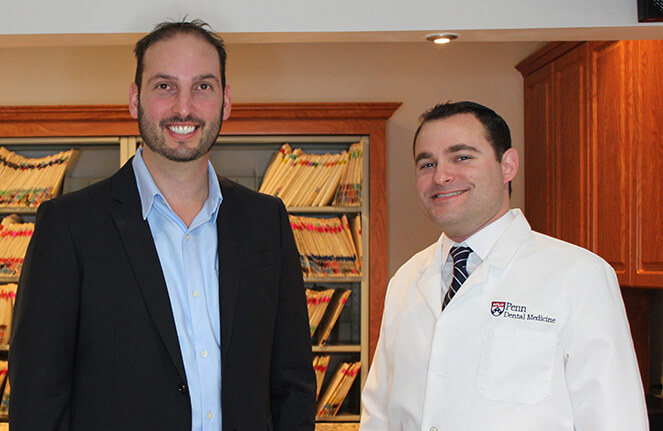
Full Answer
What to do before getting dental sedation?
- Phobia related to dental procedures
- Bad experience with dental work in the past
- Particularly sensitive oral nerves
- Small mouth that becomes sore during dental work
- Resistance to local anesthetic
- General anxiety disorder
Why to visit a sedation dentist?
Why Do You Need Sedation Dentistry?
- Are you phobic about dental procedures?
- Have you had a bad experience earlier with dental work?
- Do you have sensitive oral nerves?
- Do you have a tiny mouth and experience soreness during dental work?
- Do you have a general anxiety disorder or are resistant to local aesthetics?
Do all dentists offer dental sedation?
Sedation is the practice of using drugs to reduce pain, discomfort, and anxiety during a dental procedure. These sedatives can be pills taken orally, inhaled gas, or administered intravenously. Most dentists can provide their patients at least some form of sedation.
What dental procedures require sedation?
These include:
- The dental procedure being performed (for example, removal of wisdom teeth)
- The duration of the dental procedure
- Your level of dental anxiety

What type of dentist uses sedation?
Many periodontists offer both oral sedation and IV sedation, as they achieve relief from dental anxiety and a much more comfortable experience. Overall, IV sedation is an excellent option for patients and not something to be scared of.
Can a dentist give me a sedative?
With oral conscious sedation, your dentist gives you sedative medication (usually in pill form) about an hour before your procedure begins. Most dentists use triazolam (Halcion®), which is in the diazepam (Valium®) family. But your dentist might use other medications, too, including zaleplon and lorazepam.
How effective is sedation dentistry?
The process of oral sedation in dentistry is very effective in making the patient feel relaxed as well as to increase the cooperation of the patients. Research has also shown that the process is very effective in patients who are suffering from epilepsy, cardiovascular diseases, diabetes, and other such conditions.
Do you feel pain with oral sedation dentistry?
You do not feel pain with sedation dentistry. The more convincing answer: Dentists use a combination of sedation and anesthetic to keep you relaxed and pain-free throughout your procedure. Many patients leave the appointment with little to no memory of their treatment and feel good afterward.
Can I ask my dentist to put me to sleep?
Can the Dentist put me to Sleep for Treatment? The short answer to this question is 'Yes', your dentist can put you to sleep for treatment. However, a technique known as 'conscious sedation' has replaced general anaesthesia in modern dentistry.
What are the 3 types of sedation?
The three types of sedation dentistry are laughing gas, oral sedation, and IV sedation. All three methods have their place within sedation dentistry. But your medical history and other factors will determine the right choice for you.
Can you request to be put to sleep for tooth extraction?
Yes, you can go to a hospital to be put under general anesthesia. It is a very expensive way of dealing with your dental anxiety. Let me give you the pros and cons of general anesthesia as well as two other sedation dentistry options you may not be aware of yet.
Is oral sedation safer than IV sedation?
ORAL vs IV SEDATION A common misconception is that oral sedation is safer than IV sedation. However, the reverse is true due to the qualifications required to administer IV sedation and the ability to titrate doses with IV access.
How much does it cost for tooth extraction to sleep?
Cost of sedation dentistry is affected by insurance coverage, location, and the dental team you select. Depending on the type of sedation used, costs range from a few hundred dollars to more than a thousand. Light sedation, using oral sedatives or nitrous oxide gas, usually costs anywhere from $200 to $300.
How long does it take to have a tooth out under sedation?
Oral sedation However, these methods of sedation typically last long after the procedure, anywhere from 2 to 8 hours. The type of drug administered will ultimately determine how long the period of dental sedation will last.
How long does dental sedation last?
Essentially, oral sedation will suppress the gag reflex, suppress pain responses, reduce anxiety, and more. However, these dental sedation methods usually last anywhere from two to eight hours after the procedure.
How do I prepare for sedation?
Preparing for IV/Oral SedationYou should not have ANYTHING to eat or drink after midnight, the night before your surgery. ... Come to the hospital with a responsible adult, who will take you home after your surgery.If you wear contacts, remove them before you come to the hospital.More items...
Looking for a full-service dental office in Murfreesboro?
We have been Murfreesboro's trusted choice for dental healthcare since 1992.
How much does sedation cost?
Cosmetic Dentistry of Murfreesboro accepts payment in cash, checks, and most major credit cards. And we’re happy to file your insurance; however, we strongly encourage you to check with your provider in advance of your appointment regarding any network requirements.
See? We give you many reasons to smile
Not sure where to start? Schedule a free consultation and together, we’ll design a customized plan that fits your schedule, budget, and most importantly, your goals.
State of the Art Dental Group
Caring for individuals and families with state-of-the-art, full-service dental care since 1988.
State-of-the-Art Care
A welcoming team, comforting amenities, relaxing sedation, and all your dental treatment completed at one location. We keep your dental care state-of-the-art!
Never Rushed
Dental appointments aren’t always a priority for individuals, so our team at State of the Art Dental Group is here to make your experience personalized! We take pride in offering the full spectrum of dental services and treatments, so you rarely need a referral to a specialist for care.
Why do people avoid dentists?
Over 40 million Americans avoid the dentist because of anxiety. You don’t need to be one of them.
Can you have oral sedation in office?
Most of our patients do well with just Oral Sedation. But, we also offer in office general anesthesia provided by a medical anesthesiologist for our patients that need involved implant surgeries, have a lengthy procedure or have a complicated medical status and history. Both work well, are safe and ensure that you’ll be comfortable while having your treatment completed.
Does Smiles by Garcia provide sedation?
At Smiles by Garcia, we provide different types of sedation to help our patients overcome different levels of dental fear. We provide Nitrous Oxide Gas sedation, Oral Sedation and in office General Anesthesia. Sedation allows our patients to have their treatment finished in a couple of comfortable appointments over a few weeks. Most patients report they slept comfortably through their treatment appointments and only remember waking up at home.
Why do dentists have an anesthesiologist?
The primary reason the dentist develops a relationship with an anesthesiologist is to expand access to care and to help their patients. Many patients with dental needs cannot afford the high cost associated with anesthesia in a hospital setting. Our dentist anesthesiologist has completed an accredited dental anesthesia residency which provides us with the expertise and training necessary to safely provide sedation or general anesthesia in a dental office environment at a much more affordable cost. This eliminates the need for patients to wait long periods of time for dental treatment in a hospital setting without sacrificing the patient comfort and safety.
What is a drug induced depression of consciousness?
A drug-induced depression of consciousness during which patients respond purposefully to verbal commands, either alone or accompanied by light tactile stimulation. No interventions are required to maintain a patent airway, and spontaneous ventilation is adequate. Cardiovascular function is usually maintained.
